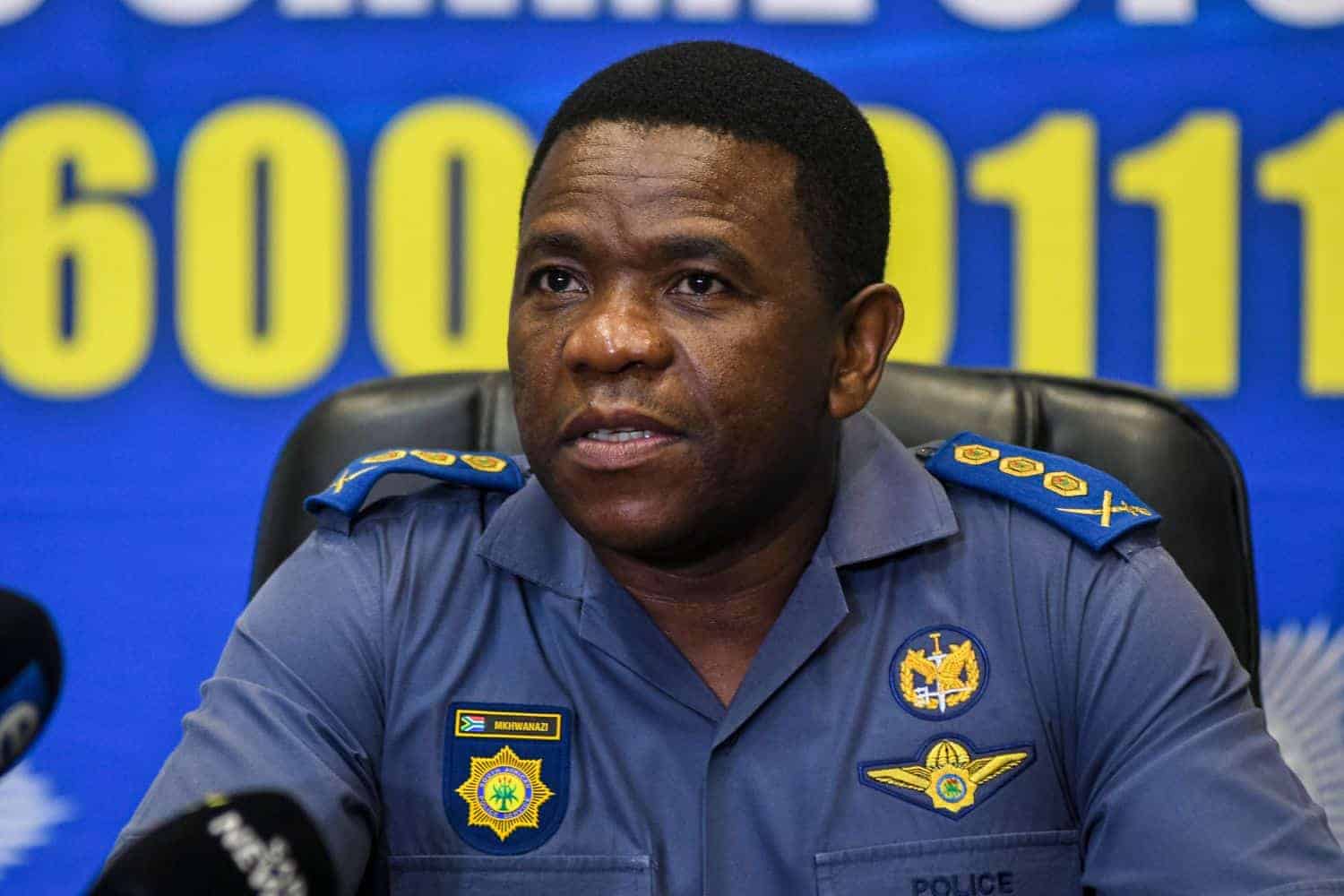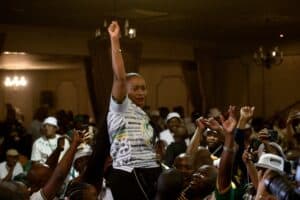The final draft of the terms of reference is expected to be circulated to MPs within two days.

Parliament’s Ad Hoc Committee investigating KwaZulu-Natal (KZN) Police Commissioner Nhlanhla Mkhwanazi’s explosive allegations has adopted draft terms of reference after over 10 hours of deliberation.
The committee, which met virtually on Monday, was tasked with considering and adopting the framework that will guide how MPs conduct their inquiry.
The document, initially presented last week, outlines the purpose of the process, procedures for witness testimony, and other operational details.
The committee, which has until 31 October to conclude its work, will operate independently of the judicial commission of inquiry, which is also set to investigate Mkhwanazi’s claims.
The commission will be chaired by former acting deputy chief justice Mbuyiseli Madlanga.
Mkhwanazi ad hoc committee debates terms of reference
The meeting, scheduled to run from 11am to 2pm, stretched late into the night as MPs debated which clauses should remain, be amended, or be removed.
Parliament’s legal services division presented the initial draft terms of reference, while political parties also made their submissions.
The document’s table of contents covered areas such as the legal framework, the objectives and scope of the inquiry, provisions for public participation, allocation of resources, the timeframe, and the venues for meetings.
After adopting the first section, MPs debated proposals by the MK party relating to the legal framework, including how to handle classified and sensitive information.
ALSO READ: Parties question ANC MP’s election in Mkhwanazi ad hoc committee, logistics concerns raised
Most members agreed that the committee should adhere to existing National Assembly protocols.
“There is a process for documents that are classified to be declassified legally, and I would like this committee to unravel whatever criminality.
“We do know that documents pretty much get classified to cover up criminality. So there is legislation available to us,” said EFF MP Leigh‐Ann Mathys.
The MK party also suggested that the committee refer matters to relevant authorities rather than determining criminal liability, to preserve the separation of powers.
Watch part one of the meeting:
Objectives of the inquiry
The Democratic Alliance (DA) proposed that monthly progress reports be submitted to the National Assembly.
However, parliamentary legal adviser Andile Tetyana reminded members that the committee is only mandated to submit a final report by the end of October.
He also noted that the DA’s suggestion to probe possible human rights abuses and the role of unions in shielding compromised police officers would require expanding the committee’s scope.
READ MORE: ‘Same as Phala Phala’ – Police committee member not optimistic about Mchunu investigations
“This falls outside of the scope of the House resolution,” Tetyana said.
DA MP Ian Cameron defended the idea of regular updates.
“It is a good principle to have consistent feedback, especially when there might be a frustration due to previous inquiries, whether in or outside Parliament, that people, particularly the public, feel that they are not taken into confidence.”
Scope and logistics
MPs then debated the scope of the inquiry. The ANC proposed that Mkhwanazi’s allegations form the basis for identifying witnesses.
The committee’s chairperson, Soviet Lekganyane, confirmed that the KZN police commissioner would ideally be the first witness, with others called depending on his testimony.
DA MP Lisa‐Maré Schickerling supported the approach but urged careful wording.
“We don’t have an issue with it; however, we cannot only say that we are going to base everything on one person because other information is going to come out.”
External legal counsel will be limited to collecting, organising, and presenting evidence.
READ MORE: Ramaphosa says Madlanga commission mustn’t take more than one year
They will also determine the questioning format for witnesses, in consultation with the chairperson and committee.
The MK party’s proposal to appoint an external forensic investigator was rejected.
According to Tetyana, public participation will be key to the process.
Hearings are expected to begin in Johannesburg before resuming in Cape Town after the parliamentary recess.
Watch part two of the meeting:
On venues, the terms of reference recommend physical sittings in the parliamentary precinct or another suitable location.
Virtual and hybrid sessions were ruled out.
MPs also agreed that extensions could be sought from the Speaker or through a parliamentary resolution if needed.
Detailed timelines will be set out in a draft programme by parliamentary staff, rather than being included in the terms of reference itself.
‘Marathon meeting’
Some MPs expressed frustration with how the meeting was managed.
“In my view, the proceedings have been wholly inadequate and have done less to support the virtual work of this committee and more to frustrate what should have been a clear and coherent process in adopting the terms of reference.
“We moved haphazardly from page to page between vastly different and unrelated submissions in a manner that was neither coherent nor streamlined, leaving the process unnecessarily confusing,” ActionSA MP Dereleen James said.
James also accused some MPs of undermining the decorum of the meeting with constant interjections.
“This meeting was poorly managed,” she added.
MK party MP David Skosana described it as a “marathon meeting”.
The final draft of the terms of reference is expected to be circulated to members within two days.
NOW READ: Here are some of the rules outlining Parliament’s Mkhwanazi allegations probe






